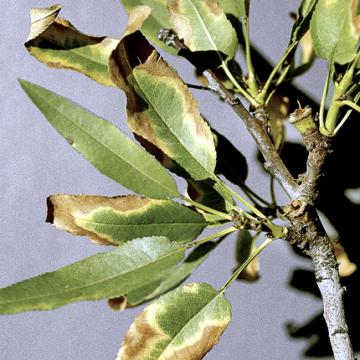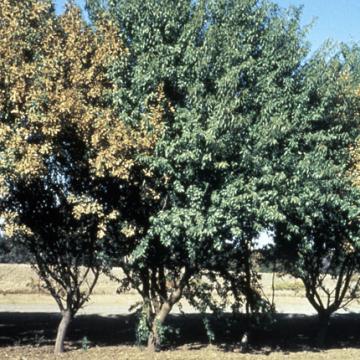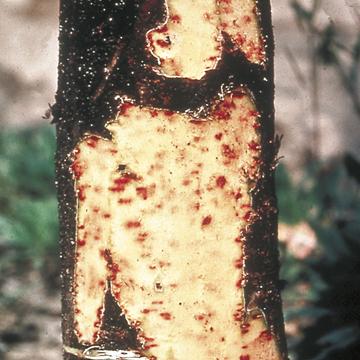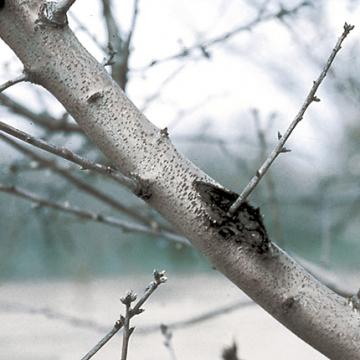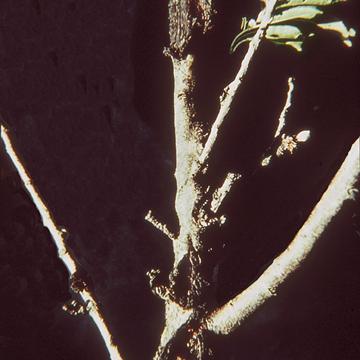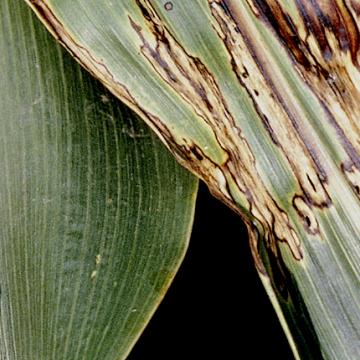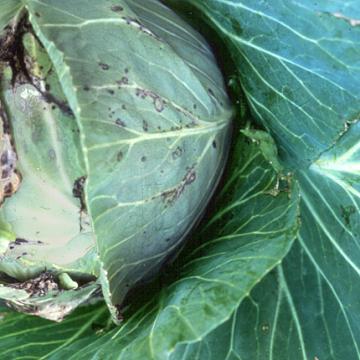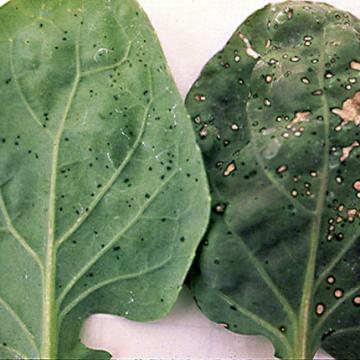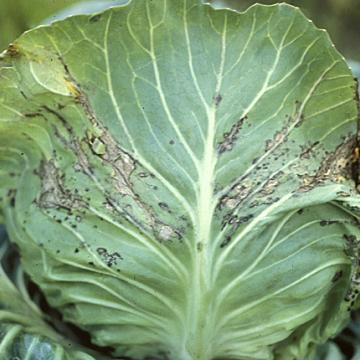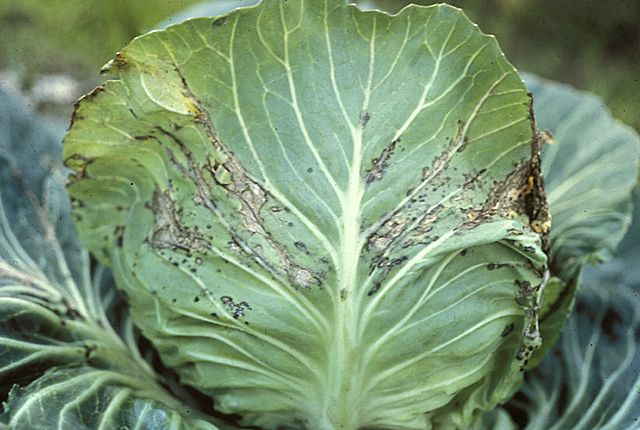DISEASE: Almond leaf scorch
HOST: Almond
Light brown necrotic (scorched) areas on curling leaves.

Almond leaf scorch | Almond
DISEASE: Almond leaf scorch
HOST: Almond (Prunus dulcis)
PATHOGEN: Xylella fastidiosa
SOURCE: W. Sinclair
DISEASE: Almond leaf scorch
HOST: Almond
Dying almond trees with scorched appearance. Initial symptoms are marginal chlorosis, usually late in the year. Scorch often is first noted at leaf tips, symptoms worsen, and terminal branches may die.

Almond leaf scorch | Almond
DISEASE: Almond leaf scorch
HOST: Almond (Prunus dulcis)
PATHOGEN: Xylella fastidiosa
SOURCE: R. Davis, M. Davis
DISEASE: Bacterial canker
HOST: Almond
Infected tissues with reddish necrotic spots, a key diagnostic symptom for the disease. Spots and streaks are commonly seen when bark is removed.

Bacterial canker | Almond
DISEASE: Bacterial canker
HOST: Almond (Prunus dulcis)
PATHOGEN: Pseudomonas syringae pv. syringae
SOURCE: B. Teviotdale
DISEASE: Bacterial canker
HOST: Almond
Diamond-shaped canker on infected limb. Such cankers are common on small limbs and spurs.

Bacterial canker | Almond
DISEASE: Bacterial canker
HOST: Almond (Prunus dulcis)
PATHOGEN: Pseudomonas syringae pv. syringae
SOURCE: B. Teviotdale
DISEASE: Bacterial hyperplastic canker
HOST: Almond
Diseased tree with multiple cankers. Margins of cankers are rough, soft, cheesy, dark brown, and have scalloped water-soaked spots that turn brown. Multiple cankers may girdle and kill small twigs.

Bacterial hyperplastic canker | Almond
DISEASE: Bacterial hyperplastic canker
HOST: Almond (Prunus dulcis)
PATHOGEN: Pseudomonas amygdali
SOURCE: P. Psallidas
DISEASE: Bacterial leaf blight
HOST: Sorghum
The disease begins with interveinal water-soaked streaks that broaden into irregularly shaped areas with necrotic centers and red margins.
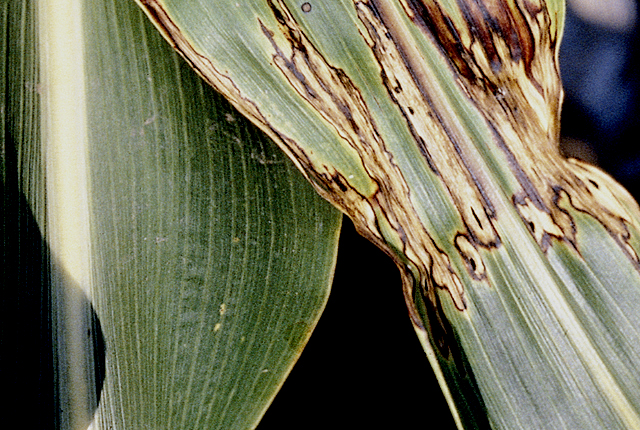
Bacterial leaf blight | Sorghum
DISEASE: Bacterial leaf blight
HOST: Sorghum (Sorghum bicolor)
PATHOGEN: Acidovorax avenae
PATHOGEN SYNONYM: Acidovorax avenae subsp. avenae
SOURCE: APS
DISEASE: Bacterial leaf spot
HOST: Cabbage
Cabbage leaves with irregular, brownish lesions. The bacterium does not invade vascular tissues.
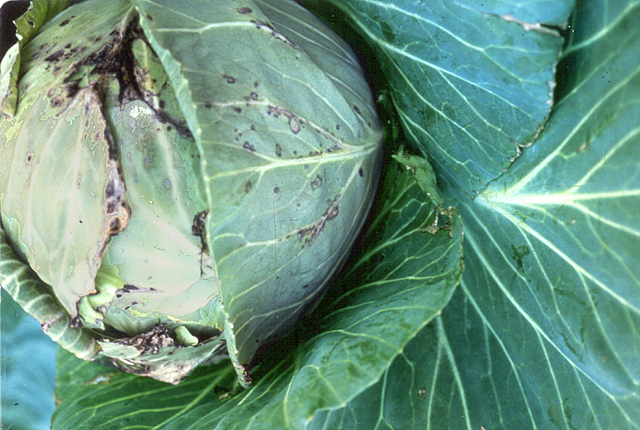
Bacterial leaf spot | Cabbage
DISEASE: Bacterial leaf spot
HOST: Cabbage (Brassica oleracea var. capitata)
PATHOGEN: Xanthomonas campestris pv. armoraciae
SOURCE: R. Gitaitis
DISEASE: Bacterial leaf spot
HOST: Cabbage
Water-soaked lesions on underside of leaf (left), and water-soaked, large necrotic lesions on upper side (right).
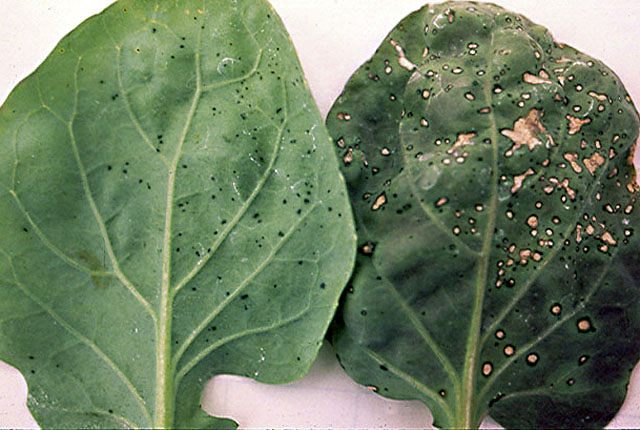
Bacterial leaf spot | Cabbage
DISEASE: Bacterial leaf spot
HOST: Cabbage (Brassica oleracea var. capitata)
PATHOGEN: Xanthomonas campestris pv. armoraciae
SOURCE: R. Campbell


